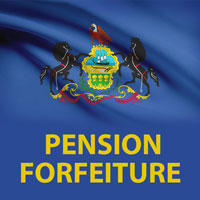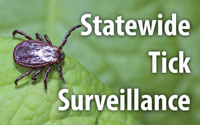House Appropriations Budget Hearing Recap
March 22, 2019
House Appropriations Budget Hearing Recap
As a member of this committee, I heard their testimonies and was able to ask questions to the heads of the various state departments. Throughout this questioning we received a lot of answers and insights into the programs that are run under their supervision, but there were also some questions that went unanswered. Such as, why we so willingly allow outside organizations, an example was the Bloomberg Foundation, to embed personnel in state agencies. I take issue with allowing organizations with well-known political and ideological inclinations to infiltrate agencies. If such an organization wanted to render assistance, they could fund a grant that is to be administered by the agency they designate. Also, our Auditor General referenced inappropriate and questionable behavior within our River Basin Commissions. Lastly, those in Wayne County, that are being unjustly deprived of their property rights are able to hear testimony of DEP's Secretary concerning the fact that NG development and power generation does occur safely all throughout the Commonwealth and, because such, we have realized a substantial increase in our air quality. A good amount of this testimony is available on my website. To view clips of my questioning during budget hearings, click here. Video of full hearings is available here. I am looking forward to crafting a budget that continues to protect taxpayers and intelligently invests in Pennsylvania’s future. |
|||
| Spotted Lanternfly Update
The spotted lanternfly was first discovered in Pennsylvania in Berks County and has spread to other counties in the southeast portion of the Commonwealth. This insect has the potential to greatly reduce the quality of life for people living in heavily infested areas. The following counties are currently under quarantine: • Berks • Bucks • Carbon • Chester • Dauphin • Delaware • Lancaster • Lebanon • Lehigh • Monroe • Montgomery • Northampton • Philadelphia • Schuylkill This week, the House unanimously passed House Bill 404, authored by Rep. John Lawrence (R-Chester/Lancaster), which would add Tree of Heaven to the list of noxious weeds in Pennsylvania. Spotted lanternfly feed off Tree of Heaven, which could be systematically destroyed by the Department of Agriculture if HB 404 becomes law, as part of the effort to prevent the insect from causing further damage. Firewood, other tree parts, and outdoor household items like grills and lawn mowers cannot be moved outside of a quarantined zone/county. Starting Wednesday, May 1, people who travel from outside of the zone and into those counties for work will need a permit to do so. Officials will begin doing roadside checks to make sure truck drivers have the proper permits. If not, they can be hit with a fine of up to $20,000. |
|||
| Scranton School for the Deaf and Hard of Hearing at the Capitol
On Tuesday, several students from the Scranton School for the Deaf made the trip down to Harrisburg to visit the Capitol building. It was wonderful getting to meet these remarkable students and I wish them the best on the rest of their school year! |
|||
| Meeting with Blue Ridge School Officials
It was a pleasure to meet with Blue Ridge School administrators, educators and school safety staff to discuss current issues. It's highly evident that Blue Ridge takes great pride in preparing their students for life and career. I had a unique opportunity to meet with two young men (Noah and William) that have stepped up to help with school safety initiatives. There's a great sense of community at their school. It is so nice to see! |
|||
| A ‘Night at the Oscars’ with the Wayne Memorial Hospital Auxilary
It was a packed house for Wayne Memorial Hospital Auxiliary's 78th Annual Ball. This year's theme was "A Night at the Oscar's." It was a fun evening with wonderful community supporters! I am pictured with from left, Dirk Mumford, chairman of the board and William Dewar, chief of medical staff. |
|||
Lots of New License Plate Options for PA Veterans
The Honoring Our Women Veterans registration plate costs $35, of which $15 goes to the Veterans Trust Fund to be used for programs and resources that assist women veterans. The Soldiers Medal, Presidential Service Badge and Legion of Merit registration plates each recognize veterans’ specific contributions during their service. These plates are available for a fee of $20. Veterans must be able to show that they are recipients of the respective awards. Veterans from other countries can apply for a Veterans of an Allied Foreign Country registration plate, also available for a fee of $20. The above plates may only be used on passenger vehicles and trucks with a registered gross weight of not more than 14,000 pounds. Motorcycle owners can now get the Purple Heart Medal Motorcycle registration plate, which displays the words “Combat Wounded Veteran” across the bottom of the registration plate. To get the plate, applicants must be able to prove they received a Purple Heart Medal and pay the $11 fee. Another new plate is the Historic Military Vehicle registration plate, which is available for antique or classic vehicles manufactured for use in any country’s military forces. The vehicles must be maintained to represent their original military design and markings. This plate is available for both historic military vehicles and historic military motorcycles for $75. For more information about plates for veterans and applying for these plates, click here. |
|||
| Setting Up Students for Career Success
The initiatives are a cornerstone of the House Republican Caucus’ #GoodJobs4PA initiative aimed at ensuring all Pennsylvanians have access to good-paying jobs and careers. To help students plot their path to success, there are bills that would allow technical schools to recruit students like colleges do; make it easier for students to see where credits transfer; create a database of workforce development programs at secondary and post-secondary institutions; create an online career resource center; and allow students who complete classes in STEM education to apply the credits to a course through a vocational-technical school, technical institution or vocational school. The package is also aimed at improving business and education partnerships by creating a CTE investment incentive program, requiring CTE programs to establish advisory committees and having at least once administrator from a CTE center on each of the state’s Workforce Development Boards. The bills now go to the Senate for consideration. Learn more about #GoodJobs4PA here. |
|||
| Holding Public Officials and Employees to a Higher Standard
Senate Bill 113 would expand the types of convictions that require officials or employees to forfeit their pensions to include any felony conviction, guilty plea or no contest plea related to an official’s job. The measure would also put a stop to the practice of a person pleading guilty to lesser crimes to avoid losing their pension and closes several other loopholes that have been exploited by officials to continue to collect pensions from the state after breaking the law and violating the public trust. The bill is now on its way to the governor for his signature. |
|||
| Protecting State Workers’ Rights
House Bill 785, which was approved by the House Labor and Industry Committee this week, would require public employers to notify their employees who are not union members annually that they are not required to pay any money to the union unless they agree to do so. The bill would also require public employers to inform job applicants of their right to choose whether or not to join the union – and of their First Amendment right to not pay any funds to an organization they did not consent to support. The bill is currently awaiting consideration by the full House. |
|||
| DEP Starts Statewide Surveillance of Ticks
The study is taking place in every county in Pennsylvania to track ticks’ habitats, life stages and peak activity levels and to test them for human pathogenic diseases. The surveillance will focus on collecting three tick species: the blacklegged tick in its immature nymphal stage, when it most often infects humans with Lyme disease, as well as human babesiosis and human granulocytic anaplasmosis; the adult American dog (Dermacentor variabilis) tick, which transmits Rocky Mountain spotted fever and tularemia; and the adult lone star (Amblyomma americanum) tick, which transmits ehrlichiosis and tularemia. The project is being funded through the Department of Health. |
|||
Sign Up to Receive Legislative Email Updates
Keep up-to-date on the latest legislative and community news. Your email address will be used strictly for legislative purposes.

.jpg)

2.jpg)

4.jpg)
3.jpg)




